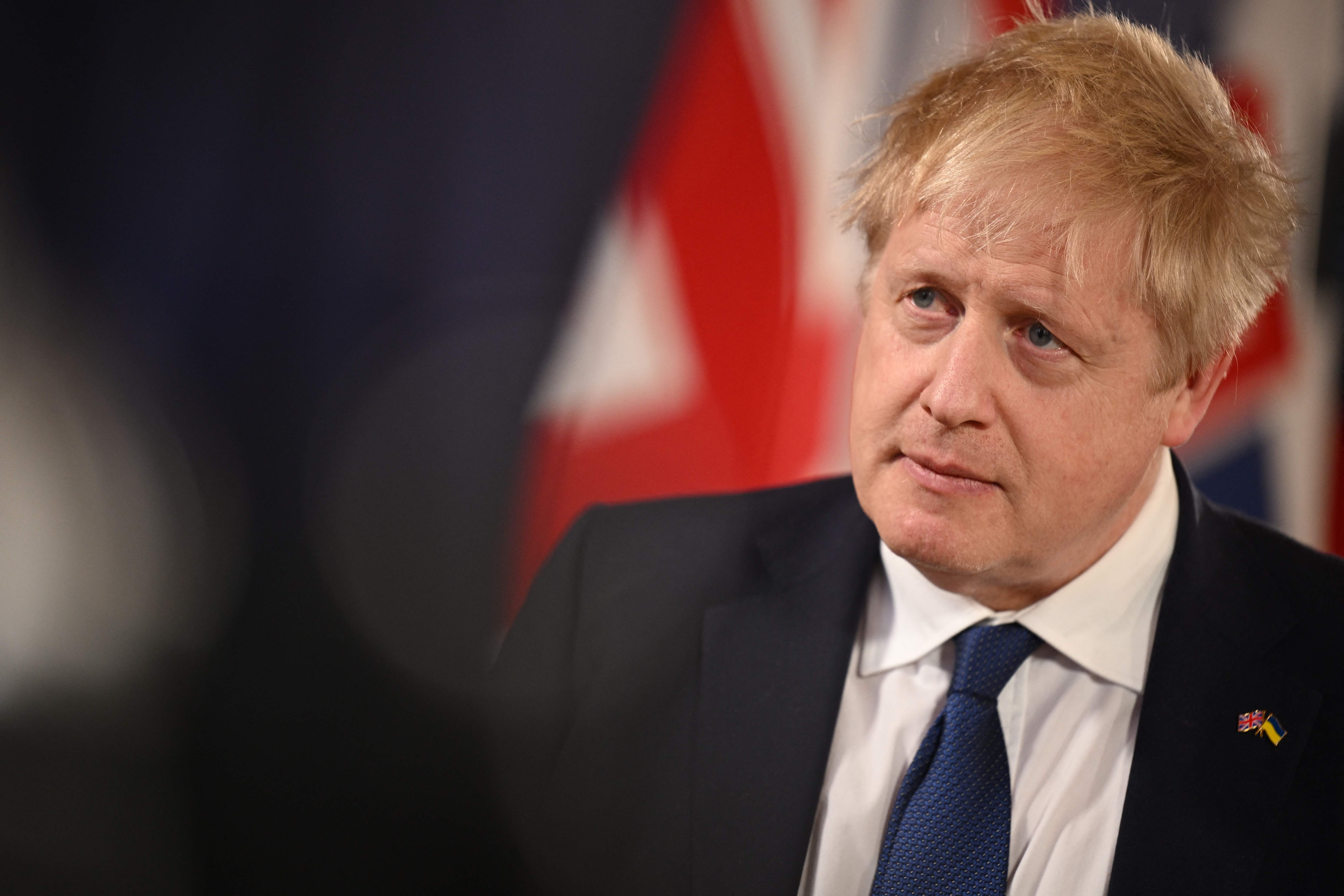Post-Brexit unity in Europe is essential – and war in Ukraine proves this
The UK government finds itself in the frustrating position of wanting to lead the charge, but remains stuck in an ideological groove that harms its influence, writes Sandra Khadhouri and Therese O’Donoghue


As we witness the destruction of Ukraine and mass exodus of refugees in the most dangerous period for Europe since the Second World War, the west has come together and mobilised remarkably quickly. But will it be enough to stop Putin?
At Keeping Channels Open, dedicated to fostering dialogue between UK, EU and US stakeholders, we have been hosting politicians, think tanks and experts in March to discuss how to end the war and consolidate UK-EU-US relations.
Many agree that transatlantic coordination and strong decision-making have been impressive, as Americans, Europeans and global partners engaged in diplomacy, deterrence and sanctions to isolate Russia and force a withdrawal. Landmark turnarounds have been made by countries like Germany, as the drastic Russian action forces a reappraisal of the post-Cold War order.
International organisations like Nato, the EU, UN, the International Criminal Court (ICC) and the Organisation for Security and Cooperation in Europe (OSCE), along with business, sports, culture and civil society have all mobilized to boost the collective response. Meanwhile, Russian tanks continue to roll through Ukraine, hospitals and schools are hit by missiles and cities are besieged.
While many commend the united front, officials and analysts agree that the west should have been tougher earlier after Russia’s annexation of Crimea, among other hostilities. There was less agreement, however, over how long western countries would avoid direct military confrontation if Ukrainian cities were systematically razed like Grozny or Aleppo.
While some doubt the Kremlin will invade a Nato ally, others warn that sooner or later, we will face “an almighty clash with Putin” as he only understands hard power. The Nato Alliance will then have to consider resuming a Cold War posture with permanent heavily-armoured divisions in Europe and preparations for the unthinkable. A megalomaniac like Putin, caged and isolated, could lash out in unpredictable ways, including with a tactical nuclear strike.
This crisis is also testing the efficacy of alliances, relationships and formats which enable consensus-building. For the UK, this invasion has been another test of its post-Brexit foreign policy and its capacity for leadership and coordination with EU allies after years of thorny relations.
For the EU, its institutions have worked night and day to unite all 27 members into coherent positions, pushing them to go further and faster than the machinery usually allows. Biden has built fragile bipartisan unity to demonstrate resolve in standing up for Nato allies, while consistently ruling out active participation in the war itself. He now faces the challenge of convincing voters that rising gas prices and inflation are worth the cost of standing up to Putin.
Throughout, the UK has been at pains to demonstrate its forward-leaning approach, based on long-running antipathy to Russia and historic support to Ukraine bilaterally and through Nato and the EU.
To offset its lack of EU membership, the UK has focused on bilateral relations and blocs like the Visegrad 4, Baltic and Nordic states, G7 and Ukraine itself. The UK foreign minister, Liz Truss, was dispatched to Moscow in February to square off against her counterpart, as German and French leaders met with Putin. Though none yielded results, growing UK-EU coordination has been welcomed, even as competitiveness still rears its head.
At the Munich Security Forum, Boris Johnson rightly declared the need for the closest possible relations between the UK and EU in politics, diplomacy and defence, but couldn’t resist adding that the UK had been faster than the EU in imposing sanctions on Belarus. He later claimed misleadingly that the UK had resettled the most refugees out of European countries since 2015.
The UK government post-Brexit finds itself in the frustrating position of wanting to lead the charge and stiffen allied resolve, but remains stuck in an ideological groove that harms its influence. Now is the time for both the UK and EU to support each other’s actions in public and deny Putin’s goals to divide and conquer.
During this crisis, the UK has promoted its closeness to US positions, echoing calls for a tougher collective response. It has also capitalised on strengthened partnerships in the Asia-Pacific. In her Atlantic Council speech on 10 March, Liz Truss said: “Britain and America have always been at the centre of European and global security, at the centre of a strong G7 with our friends in the EU, Canada and Japan.”
To keep up to speed with all the latest opinions and comment, sign up to our free weekly Voices Dispatches newsletter by clicking here
Deep transatlantic cooperation has been essential in this crisis, and has much improved since the Afghan withdrawal. However, the US is still going through domestic turbulence and may not always be able to be relied on, especially if the Democrats lose the midterm elections and there is a Trumpian comeback. American diplomats at Keeping Channels Open roundtables continually warn that Europe needs to insulate itself from future US disruption and develop stronger leadership and security resilience.
The UK cannot, therefore, solely bank on a US relationship as the core of its foreign policy, nor new allies far away in the Asia Pacific, notwithstanding the threat of China now allied with Russia and deriving its own conclusions from this crisis.
As UK-EU contacts grow organically over sanctions and other measures, it is time for the UK to soften its red lines and rhetoric, and consider a model of structured foreign policy coordination that Johnson rejected, including closer defence ties as the EU builds its strategic autonomy.
The UK-EU Trade and Cooperation Agreement provides for cooperation in cyber security, criminal law enforcement, money laundering and counter terrorist financing, but not defence or migration – both critical areas in managing the fallout from this invasion. Shared concerns in the western Balkans, Caucasus and eastern Mediterranean also loom large if destabilisation spreads. Nato-EU coordination will also grow, since a broader definition of security includes effective democratic governance and rule of law, up-to-date trade and technology rules, humanitarian actions and disinformation tools. Replacement energy sources must also be secured, and our populations braced for shortages and price hikes.
A new Transatlantic Task Force of the US, UK, Canada and the EU to coordinate on sanctions will help to bridge gaps. But the UK has a lot to offer and cannot afford to be absent from the EU table as a new European security architecture is shaped, even with a lesser role in decision-making.
The UK needs to reinvest in its relationship with Europe and win back the trust of partners, not only as a matter of economics, but of core values and security too. Warmer UK-EU relations may also help the government start to win back alienated pro-European voters in Britain, as Remain-Leave divisions continue to weaken the country, even six years on. This crisis demonstrates the need for unity – both internally and externally – now more than ever.
Sandra Khadhouri is a partner and director and Therese O’Donoghue is head of outreach at Keeping Channels Open
Join our commenting forum
Join thought-provoking conversations, follow other Independent readers and see their replies
Comments
Bookmark popover
Removed from bookmarks